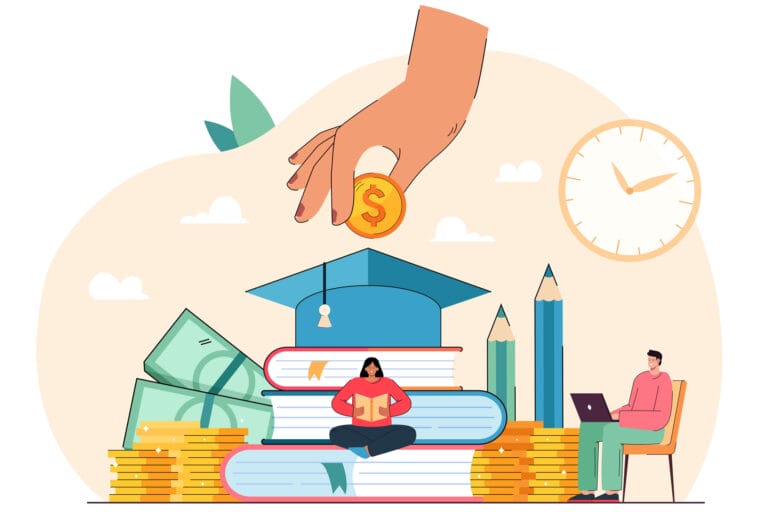
Finding your groove in college as an adult student
Have you thought about going back to school but aren’t sure where to start? You’re not alone. According to a 2022 report by the National Student Clearinghouse Research Center, more than 700,000 Wisconsin adults have college credits but no degree. Others never attended college but now find they need a degree to change careers or advance in the workplace.

In either scenario, returning to school as an adult student after a stretch of 5, 10 or 20 years can be stressful, and many people are afraid to fail. At Continuing Studies, we talk to hundreds of students like this every year. Here are some useful tips to help you through the process:
Talk to an advisor
Before you even apply to college, make an appointment to talk with an education or admissions advisor, who can help you understand your educational options and the process, including what you need to do and when.
Consider your options
Taking in-person classes on a full-time basis can be particularly challenging to fit into your schedule if you’re an adult student with a job, a family and other responsibilities. Fortunately, educational opportunities abound. You might instead consider taking classes at a nearby community college, enrolling in an online degree or certificate program or attending part-time.
Plan ahead for life as an adult student
Don’t wait until your classes start to plan your time, make childcare arrangements and determine transportation plans. When will you study in addition to your other responsibilities? What activities will you forgo while you’re a student? Share your plan with your family and friends, and don’t be afraid to ask them for help when something unexpected comes up.
Make a financial plan
Review your finances and determine expenses you can limit or cut while you’re in school. Fill out the Free Application for Federal Student Aid (FAFSA) because even if you don’t qualify for federal aid, many scholarships require it. Apply for scholarships and grants through your school and community organizations. Your employer might also offer tuition assistance.
Talk to your professors
Professors often enjoy having adult students in class because they add workplace and life experiences to classroom discussions. Professors can better understand your needs as a returning student if they know about your unique background.
Ask for help
This may seem obvious, but many students think they have to go it alone, which is not true. Get to know the in-person and virtual resources available at your school — libraries, tutors, writing centers, disability resources, veteran services, etc. Some colleges even have dedicated offices or resources for returning adult students. If you need help but aren’t sure where to go, ask your advisor.
Returning to school with family, a job, or other adult responsibilities will be a challenging time in your life. The best advice? Keep your eye on your goals and remember why you decided to return to college in the first place.
The Lifelong Learner is a monthly feature written by UW–Madison’s Continuing Studies staff. Moira Kelley, an educational counselor, can be reached at [email protected]. This article appeared in the Wisconsin State Journal on October 8, 2023.
Published on Oct 09 2023
Last Updated on Sep 19 2025
Categories: Adult Career and Special Student Services, News



